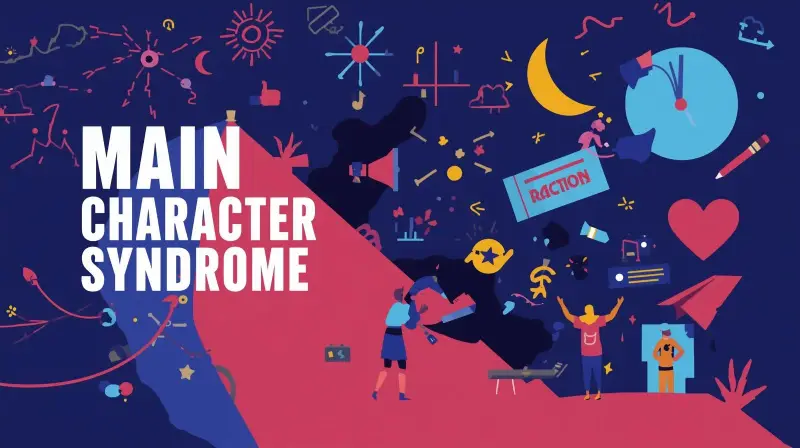Infidelity is the act of cheating on one’s spouse or partner either emotionally or physically and breaking the trust and commitment of loyalty in a relationship while two people are still together. While infidelity is an infamous aspect of human life and is considered against the virtues and ethics, it is most largely practiced by many, and you will be shocked to find out that numerous people around you have intentionally or unintentionally engaged in infidelity. Why do you think this is? And what could be the psychological reasoning behind it? Worry not; we will answer all your questions in this blog. Let’s discuss infidelity in detail and its significant correlation with and impact on mental health.
Infidelity: Psychology behind cheating

Infidelity or cheating is generally rather a reflection of the cheater and their internal unresolved issues than the reason being associated with the partner who has been cheated on. While the toxicity of the partner who had been cheated on can also be a factor of motivation towards cheating, there are several reasons why people cheat.
Low self-esteem
People with low self-esteem cheat on a new person to prove that they are desirable and to feel good about themselves. They engage with a new partner to feel attractive and good about themselves.
Lack of love
If the relationship lacks love or if someone has fallen out of love in a relationship, the person may try to find that love or connection in someone else.
Toxicity and neglect
If one partner is toxic or ignorant toward the other, or the couple fights and argues frequently, the person may try to look for real love and emotions elsewhere.
Sexual desires
Many people who cheat state that they needed a variety of sexual partners and experiences or simply more sex, or they wanted to fulfil their desires or fantasies that they weren’t able to fulfil with their real partner.
Anger and revenge
People cheat as a form of revenge to hurt their partner after a fight or as revenge for their partner who cheated or allegedly did so.
Poor commitment
A lack of commitment or boundaries can lead to people thinking they are not fully committed to their current partner and are open to seeing more people.
Circumstantial factors
Under the influence of drugs or alcohol, people often say that they were not in their senses and made bad decisions. People or friends who have multiple affairs can also influence other people to engage in multiple affairs. People pleasing to the extent when individuals cannot say no to people who make a move towards them is also another reason given by cheaters.
Cheating is an action that carries heavy consequences with it. It affects mental health adversely and causes trauma to people who have been cheated on.
Impact of infidelity on mental health

Infidelity is a breach of trust and betrayal from the person you love. It creates feelings of abandonment, chronic stress, depression, and emotional turmoil. Cheating affects not only the person who got cheated on but also the children of the couple, causing trauma to both. The adverse effects of infidelity include:
Changes in the brain chemistry
When in love, the brain releases love and happy hormones such as dopamine and oxytocin. When cheated on, the brain decreases the release of these hormones that generate positive feelings, which can cause the release of the stress hormone Cortisol, resulting in pain and emotional distress.
Post infidelity stress disorder (PISD)
Post-infidelity stress disorder is a reaction to experiencing cheating in a relationship. It is more likely to happen to emotionally vulnerable, low self-esteem, dependent, self-sacrificing people or people subjected to physical or sexual abuse in the past. It is an anxiety disorder triggered by encountering infidelity. Symptoms of this disorder can include experiencing nightmares, flashbacks, emotional and physical hyperarousal, outbursts of anger and other emotions, and difficulty in sleeping and focusing. Even avoiding the truth or reminder of infidelity is a sign of PISD; another symptom is emotional numbness, feeling no remorse or any emotions, and just feeling emotionally empty and numb.
Depression and Anxiety
Being cheated on by a loved one is a horrible pill to swallow, which causes intense emotions and reactions like humiliation, betrayal and grief. It shatters one’s self-esteem and causes depression and anxiety. The person starts feeling insecure and inadequate about themselves, which makes them anxious. Depression and anxiety can also turn out to be chronic and have long-term effects on our mental health, altering our personality and our point of view towards life and relationships.
Mistrust and paranoia
Infidelity breaks one’s trust completely and wounds them with emotional scars; the person who got cheated on can develop feelings of mistrust and paranoia, making them paranoid and anxious about relationships in future. They may develop a fear of cheating and a habit of mistrusting people as a trauma response. In some cases, people can also suffer from Othello syndrome, which is an extreme psychological condition where one can be delusional and feel convinced that their partner is cheating on them without any proof.
Devastation of self-esteem and self-worth
After being cheated on, one faces an internal dilemma with oneself. They often suffer thinking, ‘What did I do wrong?’ or ‘I was not enough’. This can shatter their self-image and self-worth. Many may start blaming themselves or finding faults within, lowering self-esteem even more.
How to deal with infidelity and its aftereffects

- Acknowledge the situation and address your emotions. This is the first step in dealing with this difficult situation.
- Take your time and pause. Before making any decision in haste and rage of all the heightened emotions such as anger and grief, take your time to process and heal and then make decisions when you feel like you are in your right mind.
- If you are the one who cheated on your partner, you must accept and take responsibility for your actions. Offer genuine apologies and remorse. Ask for their forgiveness.
- The person who cheated must end the extra affair and break contact with that person after clearing things with them and letting them know about the truth. Henceforth, contact with that person must be strictly prohibited.\
- Take care of yourself. Meditate, practice yoga, journal, and do things that make you happy. Follow a healthy coping mechanism and eat healthy. It is important to care for yourself in such difficult times.
- Set boundaries and distance from each other for the time being. This can help both parties process their emotions and make decisions about the future without the added pressure of constant interaction.
- See a counsellor or a therapist and get help to go through this period and resolve personal issues. A professional can provide a safe space to express your feelings, offer guidance on coping strategies, and help you navigate the complex emotions that come with infidelity.
- After getting in a better state, communicate and tell each other about your feelings. The person who cheated should provide answers to their partner, and both parties should discuss their relationship dynamics and if they would like to continue or end the relationship.
- If you decide to make your relationship work, pay attention to each other’s needs and start afresh. Go to couples therapy and get guidance on how to build a healthy relationship. Both partners should heal and have the same amount of dedication to rebuild the relationship. Be patient and try your best with genuine interest and intentions.
Let go of the anger for your good. Heal and start your new journey
How marital infidelity impacts children

People marry promising a life-long commitment of love, trust and loyalty. However, many married couples face infidelity, and it is more common than we can imagine. This breach of trust and loyalty leaves a long-lasting impact on their children.
Trust issues
Children with parent(s) who cheated are more likely to develop trust issues. They may face difficulty in trusting anyone, including friends or a partner, in the future. Such children also suffer from fear of abandonment, worsening their trust issues. After experiencing a breach of trust, they find it difficult to rely on or trust anyone.
Mental trauma
After finding out infidelity in their parent’s relationship, children are most likely to be taken aback by this discovery. It is a fact that they might not want to believe or know how to process. This causes trauma and confusion, establishing inner emotional turmoil.
Emotional turmoil
Children unable to cope with infidelity may face behavioral issues and hyperarousal, outbursts of emotions or emotional numbness. They may experience anxiety, hypervigilance, stress and difficulty in concentrating. Feelings of abandonment, shame, embarrassment, guilt and betrayal are common consequences of parental infidelity.
Unhealthy coping mechanisms
Children are more likely to develop unhealthy coping mechanisms to cope with the trauma of parental infidelity. The mechanisms include isolation, self-guilt and blame, denial, anger, aggression and the need to exert excessive dominance to feel like things are under their control. Some may also indulge in substance abuse to deal with the stress and escape from reality.
Poor Self-esteem
Children may blame themselves for their parent’s infidelity and begin to start hating themselves, resulting in low self-esteem. They may feel helpless and powerless and suffer with questions like ‘Why is this happening to me?’ sometimes feeling that they deserve the pain because of their poor self-image.
Depression, Anxiety and Stress
Going through traumatic situations like discovering a parent’s infidelity increases anxiety and stress, making children anxious and negative in general. They may also suffer from depression, especially while thinking about their family’s stability and the implications of their parents’ situation. This can also increase their anxiety and may even lead to panic attacks.
Health issues
The trauma of parental infidelity can cause chronic stress disorder, along with headaches and stomachaches. Chronic stress can further lead to cardiovascular issues and obesity. Children may also suffer from sleeping disorders like insomnia. The trauma can also cause eating disorders and affect their overall well-being.
Strategies to help children heal from parental infidelity

- Talk with your children, reassure them that it is not their fault, and protect their self-esteem.
- Be honest with them and answer their questions with utmost empathy and compassion.
- Let them know that their feelings are valid and essential. It is okay to feel sad and angry. Create a safe space where they can express themselves without worrying.
- Teach them healthy coping mechanisms to deal with this heavy and traumatic information.
- Give them minimal information about the matter; don’t go into detail.
- Provide mental support and teach them to stay positive. Try to create a positive environment for your child.
- To protect the child’s peace and reduce family conflicts, avoid blaming or creating hatred toward the other parent.
- Seek help from a professional. Go to family therapy or take your child to a child therapist. Therapy can help and guide your child and family to go through difficult times and cope with negative emotions.
Final reflections
Infidelity is a very complex issue. A very infamous yet not very uncommon occurrence, infidelity has been one of the major reasons for separation and divorce. The psychology behind cheating includes personal issues like low self-esteem and sexual desires or relationship issues like lack of love and toxicity. The impact of infidelity is detrimental to mental health and can cause adverse chronic consequences like post-infidelity stress disorder and depression in individuals. It not only affects the couple and the relationship, but parental infidelity can also adversely affect children. The parents must support their child to create a positive and safe environment for the child and encourage them to express their emotions. Although it might feel like a world-changing event in your life, and the pain must feel beyond repair, it is most definitely possible to get over it healthily if you are willing to practice healthy coping mechanisms. Try to forgive them and move forward with or without them, heal yourself and stay strong through the process. If you decide to continue your relationship post-infidelity, both parties need to be willing to invest in the relationship with genuine interest and promise that such a thing won’t occur again. If you decide to end the relationship, take your time and do not indulge in unhealthy mannerisms to cope with the grief, heal yourself and believe that life is holding something even better for you.




